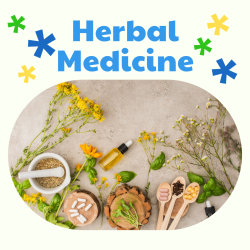
Welcome to the magical world of Ayurveda and Traditional Chinese Medicine (TCM), where nature's gifts provide us with powerful remedies to support our well-being. Let's delve into the fascinating realm of herbal medicine with a focus on an herb that has been treasured for centuries - Ashwagandha.
Overview
Ashwagandha, also known as Withania somnifera or Indian ginseng, is a prominent herb in both Ayurvedic and Traditional Chinese Medicine practices. It is revered for its adaptogenic properties, which help the body adapt to stress and promote overall vitality.
Herbal Actions
Ashwagandha exhibits a myriad of beneficial actions on the body. It is renowned for being a rejuvenative herb that supports longevity and vitality. Its adaptogenic nature helps regulate the body's response to stress, aiding in reducing stress levels and promoting mental clarity. Additionally, Ashwagandha is valued for its immune-modulating properties, enhancing the body's natural defense mechanisms.
Energetics
In Ayurveda, Ashwagandha is considered warming and grounding, making it particularly beneficial for balancing Vata dosha. TCM classifies Ashwagandha as sweet, bitter, and slightly warming in nature. These energetics contribute to its ability to nourish the body while gently invigorating it.
Usage
Ashwagandha can be consumed in various forms such as powder, capsules, or as a liquid extract. It is commonly used to combat fatigue, improve mental clarity and focus, enhance stamina and endurance, and promote a sense of overall well-being. The recommended dosage may vary depending on individual needs and health conditions; therefore, consulting with a qualified healthcare provider or herbalist is advisable before starting any regimen.
Internal Use:
- Powder: 1-6 grams daily mixed with warm water or milk
- Capsules: Follow manufacturer's recommended dosage
- Liquid Extract: Follow manufacturer's recommended dosage diluted in water or juice
External Use:
Ashwagandha oil can be applied topically to nourish the skin and promote relaxation through massage therapy.
Counterindications
While Ashwagandha is generally well-tolerated by most individuals when used appropriately, there are certain precautions to consider:
Pregnancy and Lactation:
Avoid using Ashwagandha during pregnancy unless under the guidance of a qualified healthcare practitioner. There is limited information on its effects during lactation.
Autoimmune Disorders:
Individuals with autoimmune conditions such as rheumatoid arthritis or lupus should exercise caution when using Ashwagandha due to its immune-modulating effects.
Sedative Medications:
Ashwagandha may potentiate the effects of sedative medications due to its calming properties; therefore, it is advisable to consult with a healthcare provider if you are taking sedatives concurrently.
In conclusion, Ashwagandha stands as a shining example of nature's potent healing potential. With its adaptogenic qualities, rejuvenating properties, and diverse range of benefits for both mind and body, this herb continues to captivate practitioners and individuals seeking holistic wellness solutions around the globe. Embrace the power of Ashwagandha as you embark on your journey towards optimal health and vitality!
Check out our holistic services at https://wholisticclinic.org/services